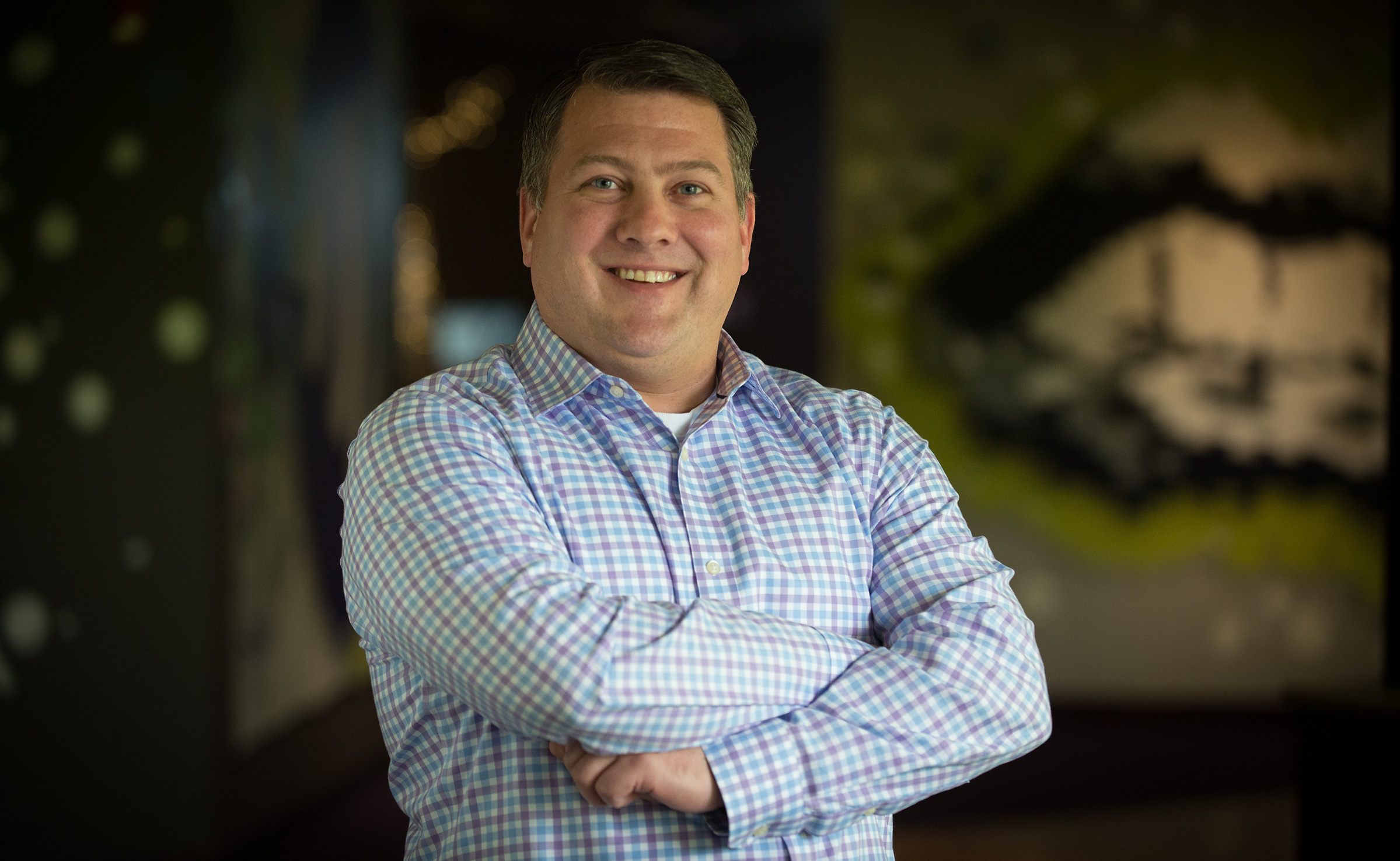What We Know Now: Michael Hirsh
It’s been awhile since we’ve taken a look into the lives of our fellow Hansonites to learn about what drives them and what words of wisdom they might today give to their past selves. Previously, we’ve talked to Leslie Mohn, Director of User Experience Architecture, Connie Calmes, Senior Account Manager, Dave Rodriguez, Director of Front-End Development, and many more. Today, we’re reprising this series with our own Michael Hirsh, Account Director.
Sally: Did you always know you wanted to work in client services? If not, how did you get interested in the field?
Mike: I actually started my career on the creative side of the business. My first gig out of college was with a small design firm in my hometown of Cincinnati, Ohio, and I was the lone copywriting/editing/proofreading resource for the agency. I was an English major, and I just wanted to write for a living, whatever that meant. A couple of years into the job I was approached by leadership about transitioning into an account executive role. Initially I wasn’t too thrilled, as I’d come to view client services as the “dark side” of the business (and frankly, I think it was their way of telling me I wasn’t as good of a writer as I might have initially hoped). But I quickly learned I had a knack for it, and believe it or not, I actually enjoyed it. There are definitely days where I long to be back on the creative end, but there are many more days that remind me why I made the unconscionable switch in the first place.
Sally: What’s something that surprised you when you first started working in client services?
Mike: I had no idea simply how big, fragmented and hyper-specialized the ad/marketing industry was. I started working on projects where we partnered with a client’s traditional ad agency, media agency, PR group, strategic consultancy, etc. I found out there were entire agencies whose sole focus was to stage events for motorcycle companies. Or to deliver sampling programs for organic foods manufacturers. I’m still not sure what to do with this information. There seems to be a trend now of consolidating work back within a smaller group of more versatile agencies. I think clients are starved for time and budget, and they no longer have the ability or patience to wrangle seven different agencies with seven different agendas. But even with that, there will probably always be a need for niche offerings, and it’s all about finding the right niche. As soon as there’s a need for a golf- and guitar-focused agency, I will have found my niche to exploit.
Sally: Is there anything you know now that you wish you’d known at the start of your career?
Mike: Initially I was very intimidated, as I was working with a lot of nationally recognized brands and large, Fortune 500 companies. There were layers and layers of bureaucracy, multi-million dollar budgets and a lot of pressure to deliver big results. But the more I worked in the business the more I learned how truly subjective a lot of it is. There are few instances where someone is necessarily “right” about something. It comes down to doing your homework, working hard, and selling your work with conviction. Sometimes I still have to remind myself of these things. Ironically, in the age of big data, I find that the basics are maybe more applicable than they’ve ever been. Worry less about being “right” and more about being prepared, informed and confident in your work. You’ll have some misses, but on the whole, you’ll come out ahead. Individual projects are pretty temporary and fleeting, so I try to learn what I can, apply it to the next project and move on.
Sally: I think that’s a great mentality, especially in this industry, when you have the opportunity to learn so much from previous projects and experiences. So what advice would you give to someone going into your field?
Mike: There’s something to learn from every project, every interaction, every relationship. I have been fortunate in that I’ve had a lot of good managers and clients throughout my career. But I also feel fortunate to have had a handful of poor managers and nightmare clients as well. Those are often as valuable – if not more – in helping determine what you want and need out of an organization in order to be successful. And maybe most important, I learned how not to be, and I think I’ve been able to apply that to my own management style.
But I think all of that experience has resulted in this advice, whether entering the client services field or not: don’t make decisions based on salary alone. Money is obviously necessary and important, but it’s not a solution to your work problems. It will only mask them for a short time, and then you’ll be back to where you were, but probably with an even higher degree of discontent. If you have a Monday-to-Friday nine-to-five like the rest of us, you’ll probably end up spending more waking time with your colleagues and managers than you will your own friends and family. Make sure you’re surrounded with people you trust and respect, and who trust and respect you. Find a manager or mentor that you can learn from, and who has an interest in making you a better employee and person. If you marry that with hard work and a good attitude, everything else will fall into place.
Sally: Is there anything else you would like to add?
Mike: Be excellent to each other.





